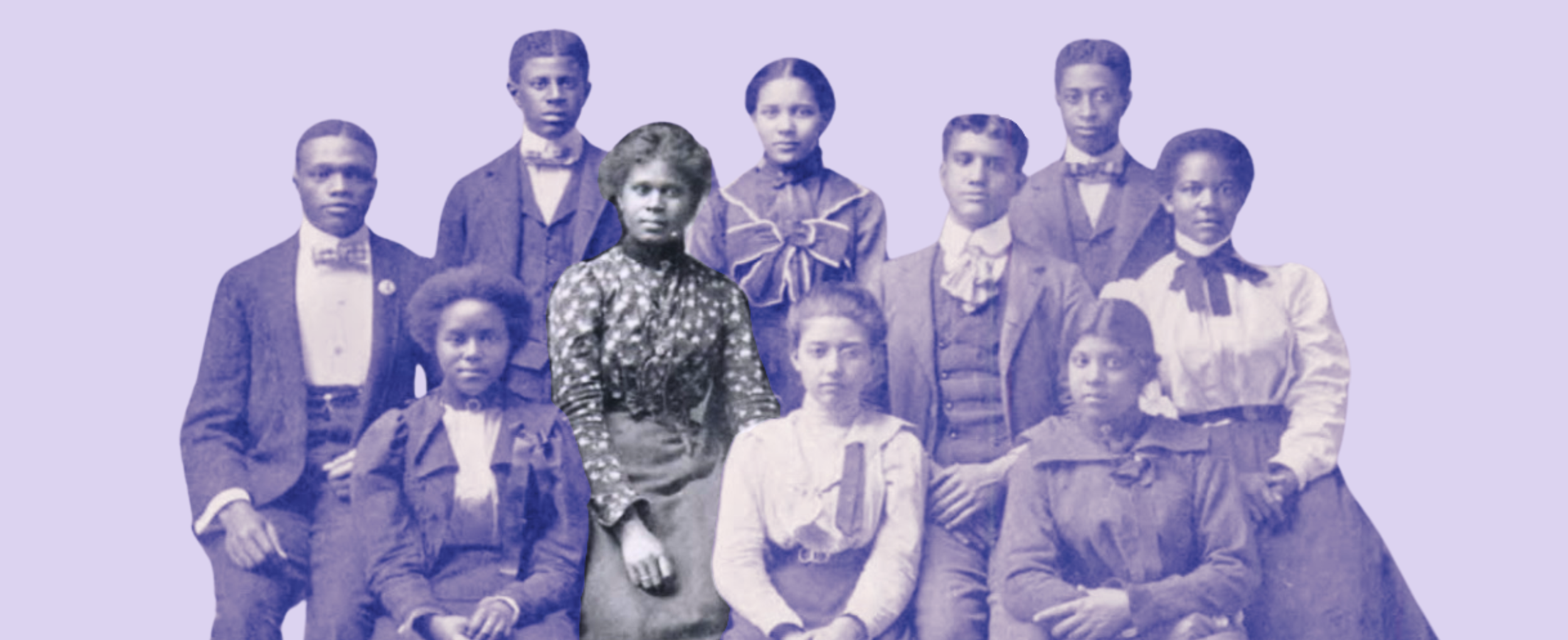Frances Berry Coston
Author: Claire Farrington, Civic Engagement Intern
“The present situation is entirely too grave to experiment with leaders who have already proved their unfitness for big responsibilities.”
Frances Berry Coston (1876-1960)
Although Frances Berry Coston wrote these words over 100 years ago, they are still eerily relevant today. Born in Kentucky in 1876, Coston has an impressive educational history. She graduated from Berea College, the first integrated co-educational college in the South, and completed graduate work at Harvard University, Columbia University, Butler University, Chicago University, and Indiana University. At Columbia, Coston was the first Black student to graduate from the Pulitzer School of Journalism. She then taught at Kentucky State College before moving to Indianapolis in 1906.
In Indianapolis, Coston taught English and Math at a variety of Indianapolis Public Schools and, in 1912, Coston was present in the house of Madam C.J. Walker when Branch 7 of the Equal Suffrage Association was founded. In the same year, Coston began writing as a journalist for Indianapolis News. In this position, Coston regularly used her platform to highlight the contributions of African Americans, advocate for civic education, and encourage women to vote. In 1917, in the Indianapolis News, Coston wrote:
“The woman in whom we should be mostly concerned for the next few months is the one who has neither the time nor the inclination to listen to a discussion on the Constitution, and the woman who does not know of the existence of such a document” … “It is essential for voters of any class or sex to understand the basic principles of the various parties, including the big issues for which the different parties have stood” (Coston, 1917)
Frances Berry Coston also worked as a principal of School No. 68, situated within the Indianapolis Asylum for Friendless Colored Children, otherwise known as the “Colored Orphan’s Home”. Here, Coston drastically improved the quality of facilities and life for individuals living in the home. To further help orphaned children, Coston founded the Educational Aid Society which sought to help these individuals seek higher education at boarding schools and colleges.
Coston was also a longtime member of the Women’s Improvement Club, serving as the treasurer and fundraiser for some amount of time. In 1918 she served as the Director of the Colored Women’s War Work in Indiana, and following WW1, Coston was named the publicity chair for Negro Women’s National Republican League for Indiana– an organization dedicated to educating Black women about the importance of voting. Coston also served as the publicity chair for the Indiana Federation of Colored Women’s Clubs for many years.
In her very little spare time, Coston spoke at public events and volunteered as a probation officer. After an incredibly successful career, she retired in 1951. Coston died in 1960 and was buried in Crown Hill Cemetery. Frances Berry Coston’s legacy is one of selflessness and service. Her countless contributions made Indianapolis a better place for all, especially women.
References
Coston, F. B. (1917, June 6). Colored Women Study Problem of Suffrage. The Indianapolis News, 20. https://newspapers.library.in.gov/?a=d&d=INN19170606-01.1.20&e=-------en-20--1--txt-txIN-------
The Indianapolis Star. (July 20, 1960). Frances Berry Coston. Newspapers.com. Retrieved January 30, 2024, from https://www.newspapers.com/article/the-indianapolis-star-frances-berry-cost/41949640/
Verderame, J. A. (2022, December 15). Frances Berry Coston. Encyclopedia of Indianapolis. https://indyencyclopedia.org/frances-berry-costin/

